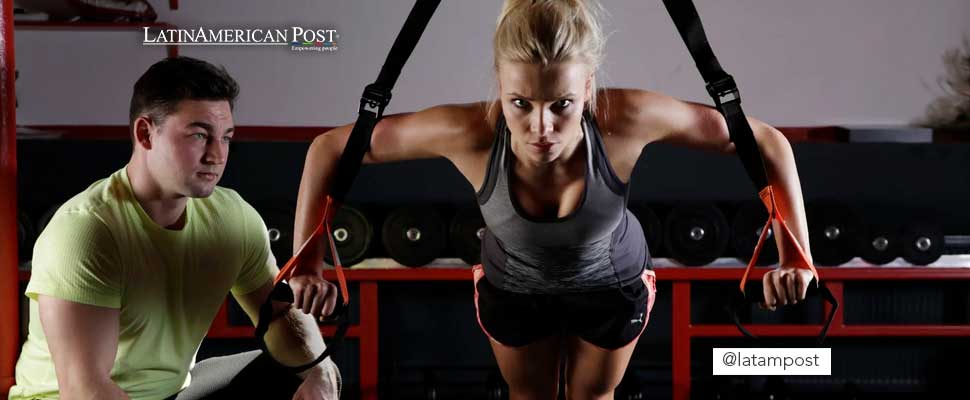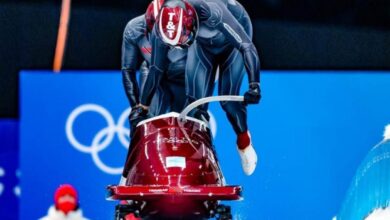5 Nutrition Tips to Improve your Sports Training
Good nutrition plays an important role in achieving better performance when training. Follow these nutrition tips for better a experience before and after exercise.

We bring you these five nutrition tips that will help you improve your workouts. Photo: Pexels
LatinAmerican Post | Luis Angel Hernández Liborio
Listen to this article
Leer en español: 5 consejos de nutrición para mejorar tu entrenamiento deportivo
People, especially those who have no sports experience, tend to underestimate the importance of diet in physical activity. A diet designed to meet the specific needs of the sport you practice will make your workouts more efficient and achieve your goals more easily. That's why we bring you these five nutrition tips that will help you improve your workouts.
Calculate how much energy you need
One of the most common doubts is how much to eat, the most important thing you should know at this point is that each person has different needs, according to factors such as age, weight or type of physical activity. There are two simple steps to know how many calories you need to consume per day, for that you must first calculate your Basal Metabolic Index (BMI), that is, how much energy your body needs for its basic functions, according to Bupa Salud. This excludes the energy you need for physical activity such as training. It is very easy to know this data through the Harris-Benedict formula:
- Men: 88,362 + (13,397 x weight in kg) + (4,799 x height in cm) – (5,677 x age)
- Women: 447,593 + (9,247 x weight in kg) + (3,098 x height in cm) – (4,330 x age)
Thus, for example, a 32-year-old man who is 175 cm tall and weighs 94 kg would obtain a BMI of 2005,841 kcal. per day. The second step is to know how to obtain the caloric needs considering physical activity, it is enough to multiply the BMI by the level of physical activity: 1.2 (sedentary), 1.3 (light exercise), 1.4 (moderately active) 1.5 (active), 1.7 ( very active). Following the example with a light activity (1.3) the daily energy requirement would be 2067.59 kcal. daily.
Think about your diet before and after training
Training requires energy, so you should think about what you are going to eat before starting it. The prestigious Mayo Clinic recommends the consumption of carbohydrates 1 to 4 hours before training. Carbohydrates stand out for their energy potential, it is important that they are low in fat and protein because it will be easier to digest, which will avoid discomfort when performing physical activity. Examples: Yogurt with fruits, Banana with peanut butter.
On the other hand, the post-training diet aims to rebuild the muscles, again carbohydrates are essential and this time also proteins that provide the amino acids necessary for recovery. You can opt for a light snack and then a meal within 4 hours of training or a meal directly. Examples: Fruit smoothie with yogurt, Turkey on whole wheat bread with vegetables.
You can also read: Very strict? These Three Diets of Athletes Are Impossible to Follow
Take care of your diet every day
It seems logical but not all people do it, eating must be taken care of every day, not just the days and hours in which you exercis . In addition to a good rest, the body also needs food to recover, increase muscle mass, hydrate, etc. So remember your caloric needs and design your diet using all kinds of nutrients: healthy carbohydrates such as whole grains or whole wheat bread, fruits that also provide fiber and sugars, legumes, etc. whose function is to give you energy. It also includes lean proteins, 15 to 25 grams per meal, helping to satisfy your hunger and at the same time in rebuilding muscle. For example fish, cheese, egg, milk, turkey or soy. Remember to distribute your meals throughout the day and have specific times, and just as importantly do not forget to hydrate, preferably always with natural water and in sufficient quantity.
Avoid the use of supplements and vitamins
In theory the use of supplements and vitamins should be something exceptional and under the strict control of a nutritionist or a doctor, however, in reality there is a widespread use of these among people who do training. According to Efe Salud, its effects can be negative if consumed without supervision, with possible damage to health. The main thing is to understand that they should not replace the diet and even less used to cover deficiencies in it.
Consider going to the nutritionist
Eating without the help of a nutritionist is certainly not a bad thing, but going to him can help you have better results . Nutritionists will consider all the factors described above, as well as the person's health, allergies, and very importantly: their goals. Whether it is to lose weight, gain weight, increase muscle mass, tone, or simply stay healthy, the nutrition professional will design a diet to suit you and keep track of your progress in order to make adjustments. Also, a good nutritionist will teach you what we saw in the previous points, you will learn to eat better and to select your foods in a conscious way.




